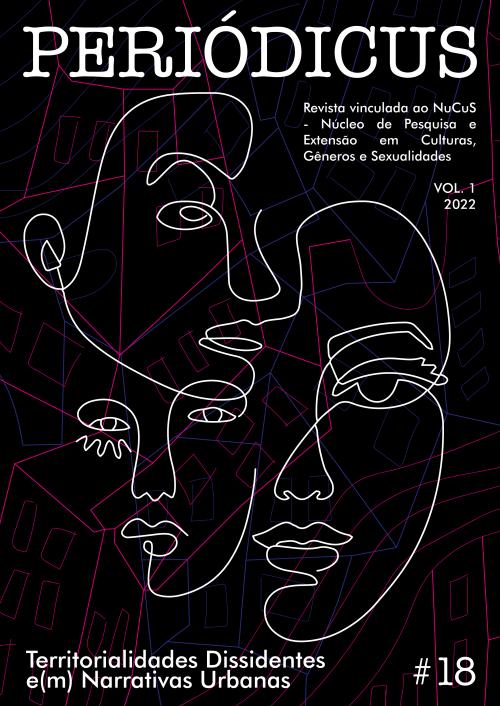Dissident experiences in the public space
ruptures and (dis)continuities in the city
DOI:
https://doi.org/10.9771/peri.v1i18.49911Abstract
Cities and individuals constitute intrinsic relationships in which the subjects develop a relevant function in the consignment of dynamics in urban spaces. The objective here is to reflect on the spatial constitution from the queer theory, to try to point out the relationships involved with the failure to comply with ‘normal’ social conventions of performance in public space. A review of the literature with the scope centered on studies of gender and sexuality is proposed to support the analysis and highlight the perceptible spatial involvement in determining such norms, that is, to point out the dissident experiences identified, as well as to establish debates about the space/individual’s relationship and its appropriation. Finally, the value of the construction of public space is emphasized with the diversity of appropriation in which queer subjects manifest themselves as a possible body, establishing ruptures and (dis)continuities in the city.
Downloads
Downloads
Published
How to Cite
Issue
Section
License
Copyright (c) 2022 Maria Eduarda Batista Dellamagna

This work is licensed under a Creative Commons Attribution-NonCommercial 4.0 International License.
Authors who publish in this journal agree to the following terms:
Authors retain copyright and grant the journal the right of first publication, with the work simultaneously licensed under a Creative Commons Attribution Noncommercial License that allows the work to be shared with acknowledgment of authorship and initial publication in this journal, but prohibits commercial use.
Authors are authorized to enter into separate additional contracts for non-exclusive distribution of the version of the work published in this journal (e.g., publishing in an institutional repository or as a book chapter), with acknowledgment of authorship and initial publication in this journal.
Authors are permitted and encouraged to publish and distribute their work online (e.g., in institutional repositories or on their personal website) at any point before or during the editorial process, as this can generate productive changes and increase the impact and citation of the published work (see The Effect of Open Access).








